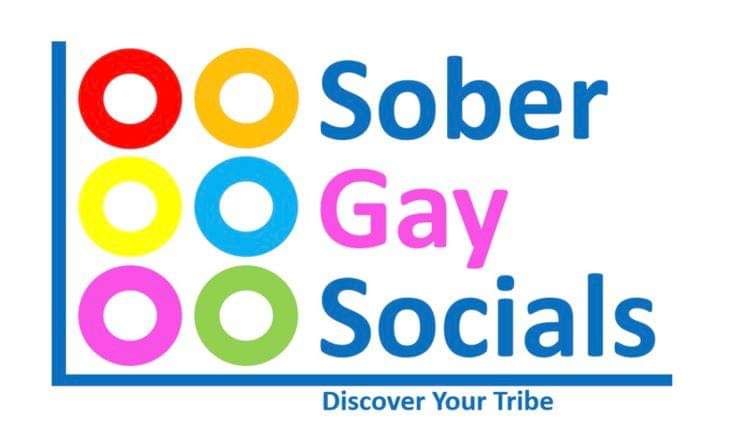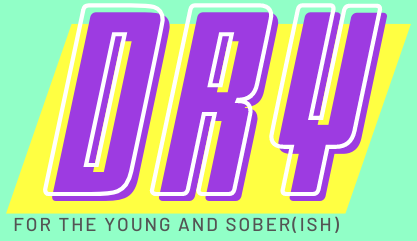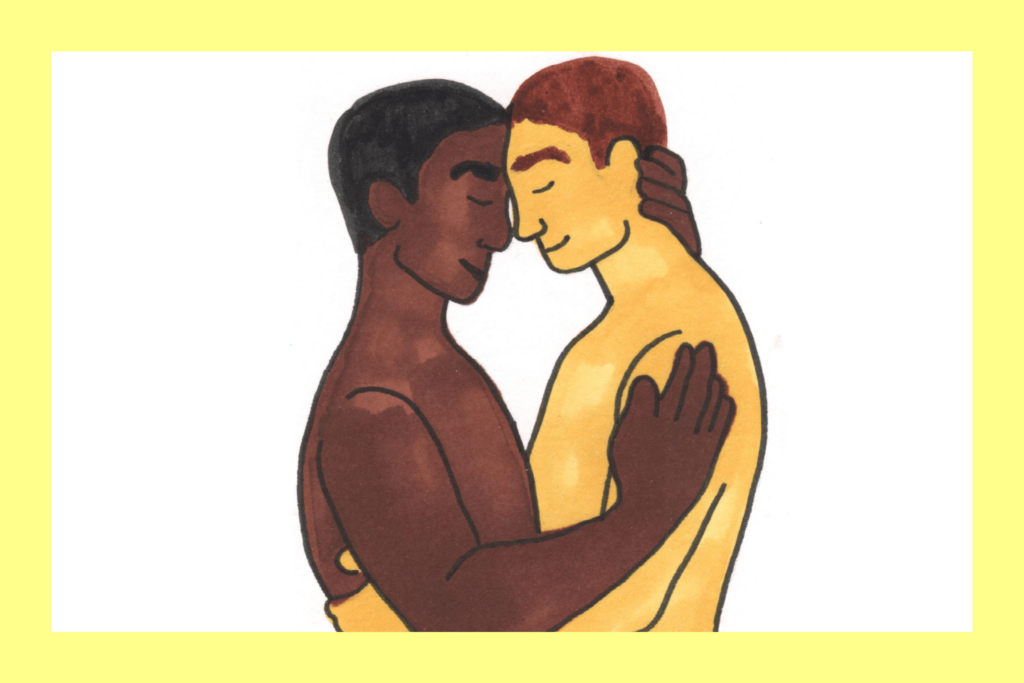Megan Key got into the club scene in Birmingham in her late teens. After having a difficult time at an all-boys grammar school, she left at 16 and eventually found herself drinking regularly. By her 20s, she was going out most nights of the week.
“It was just part of the culture for twenty-somethings,” she says, reflecting on her frequent use of drugs, her introduction into smoking and her eating habits at the time. “It all went hand–in–hand. I would drink a pint of wine with a wrap of speed in it before we went out on a Saturday night and buy 30 cigarettes. I’d have a come down on Sunday and just eat junk food all day.”
On the outside, it may have appeared that Key was enjoying her hedonistic lifestyle, but she was battling shame on the inside, struggling with gender dysphoria and her body image. “I was caught in a spiral for a long time,” she says. “I was seeing all my straight, cisgender friends having casual sex all the time. That was the lifestyle. I definitely felt like an outsider.”
These struggles continued into Key’s thirties. At 27, she skipped an appointment at a gender identity clinic to travel around Australia for 18 months with some friends, hoping that being away from home might help her escape her negative feelings. “But that didn’t happen,” she says. “You can be in the most beautiful place in the world, but you can’t escape yourself.” By 35, a psychiatrist told her that if she didn’t begin to attempt to reconcile her gender dysphoria, she may not make it to her 40th birthday.
At this point, Key decided to cut out drugs, but her binge drinking continued. Just before the lockdown in 2020, however, Key returned from Berlin — where she’d been partying at the world-famous Berghain — and hasn’t had a drink since.
Key is now one of five trustees at the London LGBTQ+ centre. As you approach Blackfriars’s Bridge while walking along the Thames path, you might just catch sight of their pop-up: home to a sober and intersectional community centre that caters to London’s LGBTQ+ population.
The space is clearly needed. Research has shown that while patterns in alcohol use vary across different orientations and gender identities, there is higher prevalence of hazardous drinking among the LGBTQ+ population compared to the general population. An NHS report released last year found that one third (32%) of lesbian, gay and bisexual adults in England report drinking over 14 units in a week, compared to 24% of heterosexual adults. A qualitative study from Glasgow Caledonian University of alcohol service users in Scotland identified significant barriers to accessing support services, with many respondents feeling that their drinking was “inextricably linked” to their LGBTQ+ identity.
“As queer people we’re stigmatised just for existing,” explains Key. “A lot of us come with mental health issues because of family rejection, unemployment and unstable housing. Some people seek solace in substances because they enable them to get through life more easily.”
The London LGBTQ+ centre aims to fill a much-needed gap in the market for London’s LGBTQ+ community, providing a space where sober and non-sober folk alike can come together to build relationships and share experiences.
Since the opening of the pop-up in December, Key says it has gone from “strength to strength.” With 1000 people a month visiting the centre and partnerships with 20 community organisations, the centre announced in May that they had been able to extend their lease until at least July 2022.
Thankfully, the London LGBTQ+ centre is not alone, as more groups that provide opportunities for sober LGBTQ+ people are being formed across the country. Stephen Wilkinson, a Manchester-born gay man, set up Sober Gay Socials in Manchester’s gay village last year.
Like Key, Wilkinson struggled with alcohol misuse. Just before he decided to go sober in February 2020, he was functioning well, with a “nice job, nice car, nice lifestyle and nice holidays,” but was drinking heavily on a daily basis. “How I managed to do it, I don’t know,” he says.
Once he was able to give up alcohol, Wilkinson realised that staying sober on the gay scene was not straightforward. “I wanted to start going out, but I didn’t know any other sober people,” he says. “There’s no visibility of gay, sober, social communities in the [Manchester gay] village. Support groups tend to take you out of the village, away from the party.”
Wilkinson decided to set up Sober Gay Socials, organising regular sober events and meet-ups in the heart of Manchester’s gay scene. Just like the London LGBTQ+ centre, the growth of his group has been rapid. “I had two people turn up to the first meeting. Then it was six people. Then it just grew and grew,” he says. “We do Sunday lunches once a month and we’ve started doing evening events in the village.”

Wilkinson believes the issue goes far beyond supporting people in their sobriety and more needs to be done to stop addiction from occurring in the first place. He says: “Groups like mine are essentially there to sweep up the debris after an accident, but there’s no one preventing the accident from happening in the first place.”
Suffering with homophobic bullying well into adulthood, Wilkinson experienced first-hand why LGBTQ+ people are significantly more susceptible to addiction. “We’re in 2022, yet we’re still having to fight for our rights. It’s no wonder we have an addiction problem.” He suggests that teaching tolerance from a young age will be necessary to make a difference. As for what we can do immediately: “it’s everybody working together and it’s normalising the fact that some people don’t drink.”
Key agrees that the community needs more options. “I’m not saying swap out the clubs and the bars, because that’s a part of our culture,” she says. “But there are times in everybody’s lives where we need to stay away from some of these things. There needs to be alternatives. I don’t want anybody who is LGBTQ+ to be ashamed of who they are, we should be celebrating. Really, you’re okay who you are, and you’re just as cool if you don’t drink and take drugs.”
Illustration: Amy-Rose Holland, Picture editor: Charlotte Doyle

